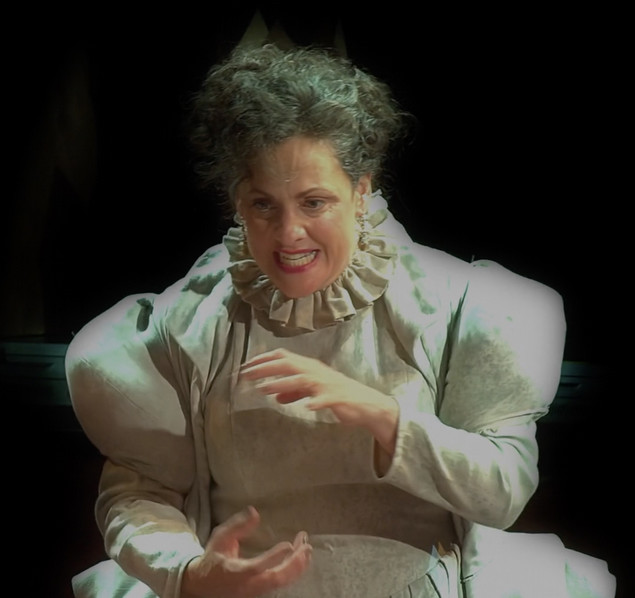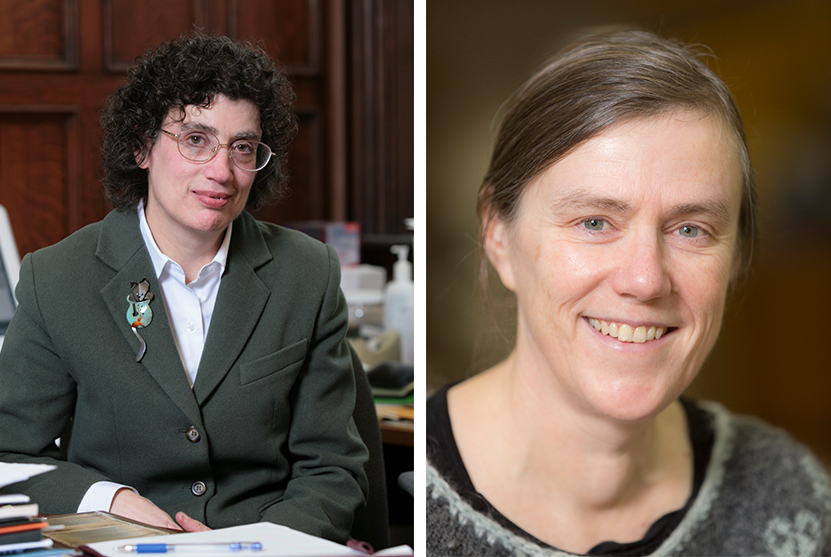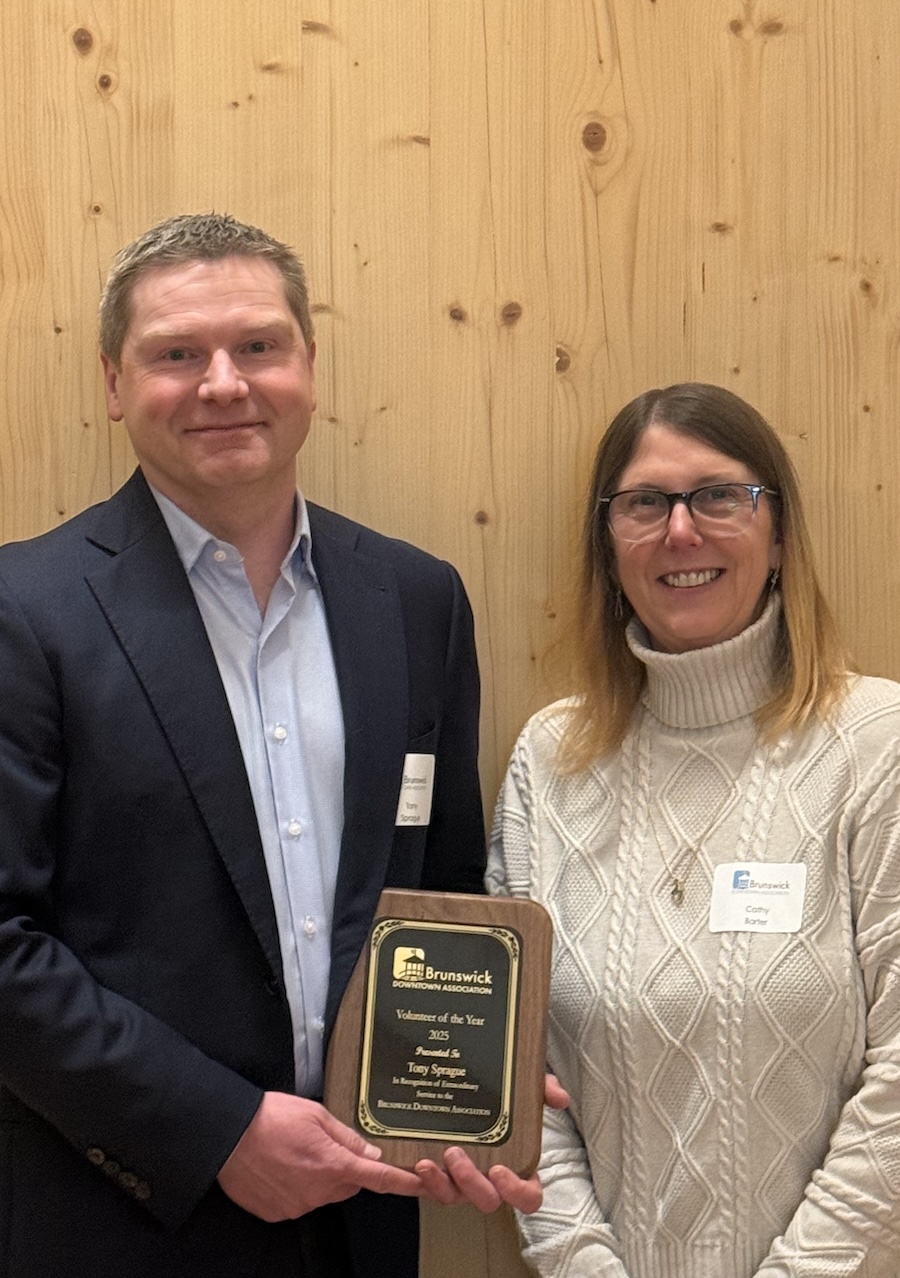Bowdoin to Build Barry Mills Hall and New Center for Arctic Studies
By Bowdoin NewsMills Hall will honor Bowdoin’s fourteenth president, Barry Mills ’72, H’15. In conjunction with the building’s construction, alumnus and former Bowdoin Trustee Stanley F. Druckenmiller ’75, H’07 and his wife, Fiona Druckenmiller, will honor Mills with a $5-million donation to the College’s need-based financial aid program.
“This is a truly wonderful moment for the College. I can think of no more fitting ways to honor Barry’s remarkable legacy as president than an academic building that will play a significant role in enhancing a Bowdoin education and a magnificent gift from Stan and Fiona Druckenmiller to support Barry’s deep commitment to and belief in the transformative power of need-based financial aid.”
—Bowdoin President Clayton Rose
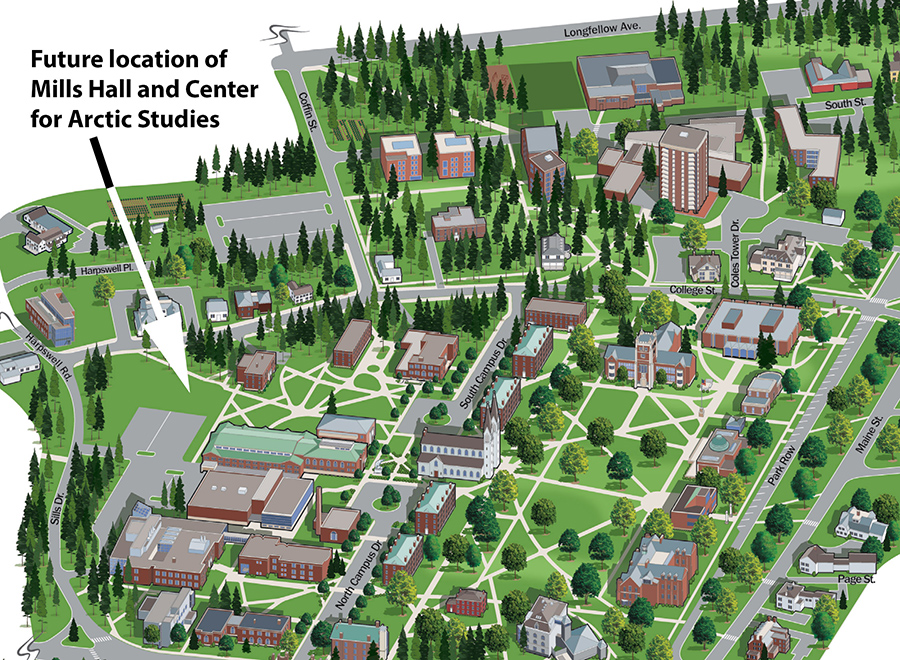
“Today we also celebrate our rich connections to the Arctic with a new home for the Peary-MacMillan Arctic Museum and for Arctic studies, one of only a handful of such programs in the country and one we are poised to develop further,” said Rose. “This new building will give our collection—unique in many respects—a modern home that will allow visitors, students, and scholars new and better engagement with our collection, as well as attract exhibitions from elsewhere. It will also further enhance and encourage robust interdisciplinary scholarship and teaching related to the issues of the Arctic.”
Mills Hall and the Center for Arctic Studies will be constructed adjacent to each other near the corner of College Street and Sills Drive, on a portion of the former Dayton Arena site, east of Smith Union and across from the new Roux Center for the Environment. Once the new buildings are completed, the nearby Dudley Coe Infirmary building will be taken down, opening up a new quadrangle and vistas toward Bowdoin’s main quadrangle.
“Bowdoin changed my life and continues to change the lives of so many others through access to an education and experience dedicated to serving the common good,” said Mills. “I am tremendously honored, and I am humbled and proud to know that my name will be added to a building dedicated to learning on Bowdoin’s magnificent and historic campus. I am also very grateful to Stan and Fiona for this gift and for their great generosity to the College over many years.”
HGA Architects, headquartered in Minneapolis, Minnesota, with offices in Boston and several other cities, has been chosen to design the new buildings, and program committees of Bowdoin faculty, staff, and students are being formed to work with them. Construction is anticipated to begin summer 2020, with expected completion at the end of the fall semester in 2021.
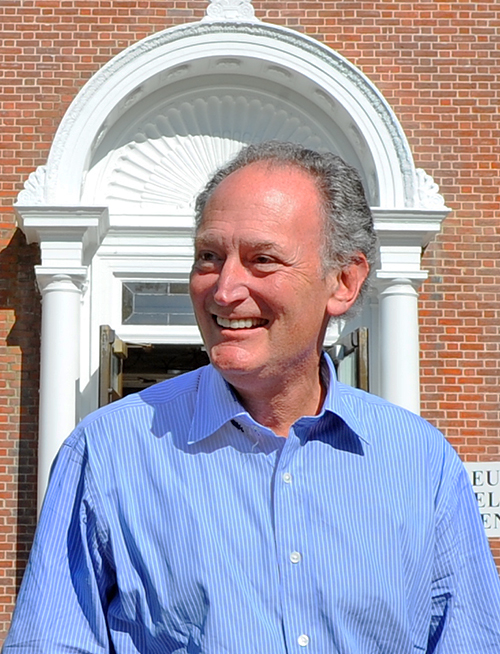
Barry Mills at his 45th Bowdoin Reunion in 2017
Barry Mills Hall
Mills Hall exemplifies the commitment—shared by the College and Barry Mills—to a liberal arts education of depth and integration, mastery, and application and to addressing enduring and new challenges. It will include new classrooms, faculty offices, and a 200-seat auditorium. The classrooms will be designed to facilitate active learning and the use of new and evolving technologies. The auditorium will allow for the use of film and video in teaching, as well as for the hosting of campus and academic events. The building will also include an event space that will accommodate approximately 250 seated guests or more for a function without seating.
Upon completion, Mills Hall will allow for a full renovation of Sills Hall, featuring reconfigured faculty offices, classrooms, and common spaces, with a design to enhance the community of scholars who teach in the humanistic areas of languages, literature, and cultures.
Barry Mills was born in Providence, R.I., and graduated in 1968 from Pilgrim High School in Warwick, R.I. A dean's list student at Bowdoin, he graduated cum laude in 1972 with a double major in biochemistry and government. He earned his doctorate in biology in 1976 at Syracuse University and his law degree in 1979 at the Columbia University School of Law, where he was a Harlan Fiske Stone Scholar. Prior to becoming Bowdoin’s fourteenth president in 2001, he served as deputy presiding partner of the New York law firm Debevoise & Plimpton, one of the nation's preeminent international law firms. He was named to the Bowdoin College Board of Overseers in 1994 and became a trustee of the College in 1996. In March 2017, Mills was named deputy chancellor at the University of Massachusetts Boston and, four months later, was appointed interim chancellor of the school. He successfully worked to stabilize UMass Boston’s finances and stepped down from the post in July 2018.
Mills and his wife, Karen Gordon Mills, were awarded honorary degrees at Bowdoin’s Commencement in 2015. The award citation described Mills’s leadership at the College as “forward-thinking, wise, tough, bold, and compassionate.” As president, Mills led the first major curriculum reform at Bowdoin since the early 1980s. He expanded ethnic, religious, and socioeconomic diversity among students and employees, launched a new program in earth and oceanographic sciences, and initiated a comprehensive master planning study to guide future campus development. Mills worked to bolster the humanities and to strengthen and increase support for the arts at the College, completing a major expansion and renovation of the Bowdoin College Museum of Art; a conversion of the Curtis Pool building into the Studzinksi Recital Hall and 280-seat Kanbar Auditorium; and a complete renovation of the former Longfellow Elementary School into the Edwards Center for Art and Dance. Student residential life was also improved during the Mills presidency through the construction of new residence halls and the renovation of existing residential facilities. The Peter Buck Center for Health and Fitness and the Sidney J. Watson Ice Arena both opened during the Mills presidency, and the College also established the Joseph McKeen Center for the Common Good.
Perhaps foremost among his numerous accomplishments as president was an intense focus on fundraising for financial aid. Mills was a first-generation college student who was able to attend the College because of financial aid, and during his tenure, the Bowdoin endowment—nearly half of which is permanently restricted by donors to the support of student financial aid—more than tripled in value. In 2008, during the Mills presidency, the College eliminated student loans in its financial aid packages, and Bowdoin became one of only eighteen colleges and universities in the country that are need-blind in their admissions policies and no-loan/grant-only in their financial aid programs. It is this commitment by Mills to access and opportunity that is being recognized by Stanley Druckenmiller with his pledge to celebrate the construction of Mills Hall with a $5-million gift to financial aid at the College.
“Fiona and I are thrilled to honor Barry Mills,” said Stanley Druckenmiller. “Measured by numerous metrics, the progress made at Bowdoin during his tenure is simply astounding. We are especially pleased that the funds will go to need-based financial aid, which was a particular emphasis for Barry throughout his administration.”
The Center for Arctic Studies
The study of the Arctic has a long and broadly interdisciplinary history at Bowdoin College.
It includes the work of faculty teaching and conducting scholarship in areas such as government and legal studies, environmental studies, earth and oceanographic science, marine science and ecology, anthropology, economics, art, history, and physics. The new Center for Arctic Studies will stand with Bowdoin’s Roux Center for the Environment and the Schiller Coastal Studies Center in Harpswell as significant and unique facilities for the interdisciplinary teaching and study of the environment, the Arctic, and the North Atlantic region, and it will provide new teaching and laboratory spaces to encourage, enhance, and expand collaborative work among faculty, students, and visiting researchers focused on this increasingly important region of the world.
The center will also provide modern galleries and support spaces for the Peary-MacMillan Arctic Museum currently located in Hubbard Hall.
The museum’s collection includes films, journals, photographs, and material artifacts that chronicle Arctic expeditions by Admiral Robert E. Peary (Bowdoin Class of 1877) and Admiral Donald B. MacMillan (Bowdoin Class of 1898). It also includes exemplary art, artifacts, and cultural objects.
This new home for the collection will dramatically improve the opportunities for students to work with the museum’s holdings, for Bowdoin faculty to teach using the museum’s resources, for the general public to explore and learn from the museum’s exhibitions, and for visiting scholars and others to engage with the Arctic Studies program.
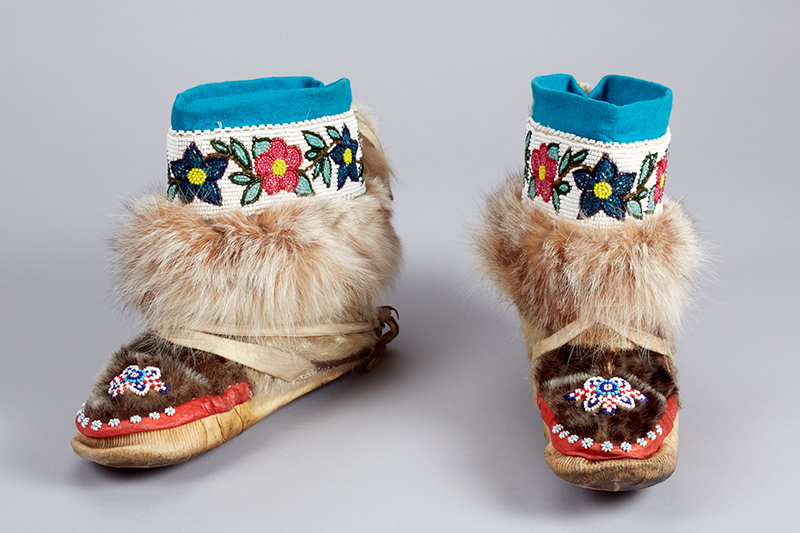
"Pair Alaskan fur boots, with blue cloth trim, beaded top and instep - women's. Circa 1960"
Source »
